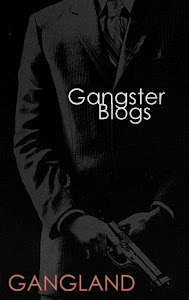
soldiers seized 23.5 tonnes of cocaine – enough for about 200 million lines of the drug – in the world's biggest ever cocaine bust. It was destroyed in a public bonfire. Calderon is hoping his crackdown will bring his administration rewards from the US, which has frequently urged its southern neighbour to be more aggressive against drug mafias. The US Congress is debating a $1.4 billion anti-drug aid proposal for Mexico, including high-tech phone-tapping equipment and possibly Black Hawk helicopters.The proposal has been tacked onto a bill requesting more funding for US military operations in Iraq and Afghanistan. Calderon argues the US government has a responsibility to help out because US drug users fund the traffickers - analysts estimate that Mexican drug trade to the US is worth around $10 billion to $30 billion a year.Most of the weapons fuelling the bloodshed are also bought in US gun stores and smuggled south over the Rio Grande."How are we supposed to confront these guys if they come at us? We need the army to wipe them out"Osiel Mendoza, Mexico City police officera group of armed men went to the house of a police officer in Tijuana and shot him dead, along with his wife and nine-year-old daughter.Armed men have also battled police and soldiers in clashes lasting up to three hours, turning Mexican residential areas into war zones.Analysts say the orchestrated attacks show that Mexico's longstanding drug violence has entered a new phase. In the past, rival gangs fought over billion-dollar smuggling routes of cocaine, heroin, and marijuana to the US. Now, the gangs are working together to defend these routes from the federal government."We used to see narcos against narcos. Now we are seeing narcos against cops," Jorge Chabat, a Mexican drug expert, told Al Jazeera using the common Mexican name for drug traffickers. "Calderon is paying the price for taking on the cartels. As he has five years left in power, he might just get away with it.""It's a bi-national problem," said a senior US drug official in Mexico who withheld his name for security reasons. "It's an extremely bloody uphill battle. Narco-organisations have a developed infrastructure. It is being threatened and we are seeing their brutal response."However, critics worry that Black Hawks or other such tools given to Mexico could fall into the wrong hands. In the last two decades, hundreds of police, soldiers and politicians have been convicted of working for the cartels. One entire unit of army special forces deserted in the late 1990s to form a paramilitary commando called the Zetas, who work as bloody enforcers for the Gulf Cartel. Their rival, the Sinaloa Cartel, imitated their paramilitary style by training hundreds of would be enforcers in special weapons and tactics. After years of beheadings and reprisal massacres, these two cartels recently reached a truce, only to turn their wrath on the federal government, according to Mexican and US drug officials.The level of firepower of the drug gangs has been shown in raids on cartel safe houses in recent weeks. Police stormed one middle-class Mexico City home to find 30 guns, 12 grenade launchers, 30 grenades and more than 40 bullet-proof jackets with the initials FEDA – a Spanish acronym for "Special Forces of Arturo Beltran", an alleged drug gang leader.A raid on a Tijuana warehouse used by a cartel for training even unearthed a shooting range and assault course.Low ranking police officers complain they are outgunned and are risking their lives for salaries which are as low as $600 per month."How are we supposed to confront these guys if they come at us?" Osiel Mendoza, a Mexico City police officer, "We need the army to wipe them out."














0 comments:
Post a Comment